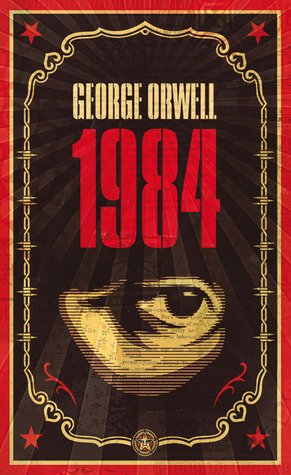George Orwell’s 1984 is a grim read that tells of a future in which something has gone horribly wrong in society resulting the extreme oppression of the citizens of at least one super state. It might be most famous for exploring the idea of technological mass surveillance but at its core it is a book about power.
To best understand the book it helps to understand a little about the circumstances in which it was written. Released in 1949 it was written during the immediate aftermath of WWII as the Iron Curtain descended over Eastern Europe and Stalin tightened his grip on power. It was also a time when communism was spreading globally, particularly in Asia. The threat of global war was renewed however this time with the prospect of nuclear weapons.
This was also a time when the old European empires were in rapid retreat, the seat of Western power had shifted to the USA and Britain had yet to develop its own nuclear weapons. Britain was also struggling to recover from WWII economically.
George Orwell himself was a disillusioned socialist. Deeply committed to socialist economics but strongly opposed to communism and its totalitarian tendencies, especially Soviet style communism under Stalin.
The effect of all these personal (Orwell), national (Britain) and global anxieties are reflected in the story. However, while socialist revolutions were the vehicle used to explain how the political structure of 1984 emerged, the central themes of the story would still work if a different ideology was used, i.e extreme oligarchical capitalism. It is a book about political power crushing the lives of individuals so all that is required is a mechanism to concentrate extreme political power in the hands of a few at the expense of an increasingly disempowered general population. What matters is the relentless accumulation of power for power’s own sake.
1984 is told from the perspective of Winston Smith, a low-level party member who works in the “Ministry of Truth”. Winston’s world is one in which there is no objective truth, only party approved “facts.” The classic example of which is requiring citizens to believe “2 + 2 = 5” despite knowing it being demonstrably false. 1984 explores the throne of lies upon which totalitarian oppression sits. In the party’s view, every “fact” is malleable, one of several possible truths. Which one is true at any one time depends upon which best suites the purposes of the party.
The best example of this is the global war that has been running for decades between the three super states that exist in 1984. At any one time Winston’s nation is at war with one and allied with the other. Winston observes that every few years the allegiances suddenly switch for no apparent reason but the official history is that the allegiances have never varied. Winston begins to doubt the war’s existence and since it is never directly observed by the reader, he might be correct. He begins to suspect that the war might simply be another party tool to maintain social unity. United against a common enemy.
“War is Peace”
The threat of a global war against two rival super states over time enables the party to force the citizenry to tolerate ever more pervasive attacks on their individual freedoms in support of the war effort. To do otherwise risks losing the war and being enslaved by foreign invaders. Only total loyalty to the party can avert this fate.
“Freedom is Slavery”
This leads to doubts about the very nature of Winston’s world beyond Airstrip 1 (formerly the United Kingdom). No other parts of the world are directly observed or objectively documented as foreign trade and travel do not exist in 1984. It is possible that only the United Kingdom has succumbed to such brutal totalitarianism and now exists as an isolated hermit state. Or the world could be exactly as described by the party. The point is that Winston (and by extension the reader) have no way of knowing. Objective truth is buried.
“Ignorance is Strength”
The true horror and genius of 1984 isn’t the mass technological surveillance. Rather it is as a cautionary tale (rather than a discrete prophecy) showing glimpses of a disfigured, tortured, grotesque society that exists in our near future and is a clear descendent of our own. One in which technology is exploited to the detriment rather than the benefit of humanity.
This is a story about totalitarianism and the disturbingly simple but powerful ways to gradually and increasingly enslave an entire population, which is why it remains relevant. The party’s methods are written right there above the front entrance to the Ministry of Truth:
“War is Peace
Freedom is Slavery
Ignorance is Strength”
About the author: Chris is an Associate Editor at Grounded Curiosity and a currently serving Australian Army officer. Building on a multi-discipline engineering background, his passion is technological development and PME. Chris’ work has previously appeared on Grounded Curiosity, Strategy Bridge and The Cove. Find him on Twitter.

